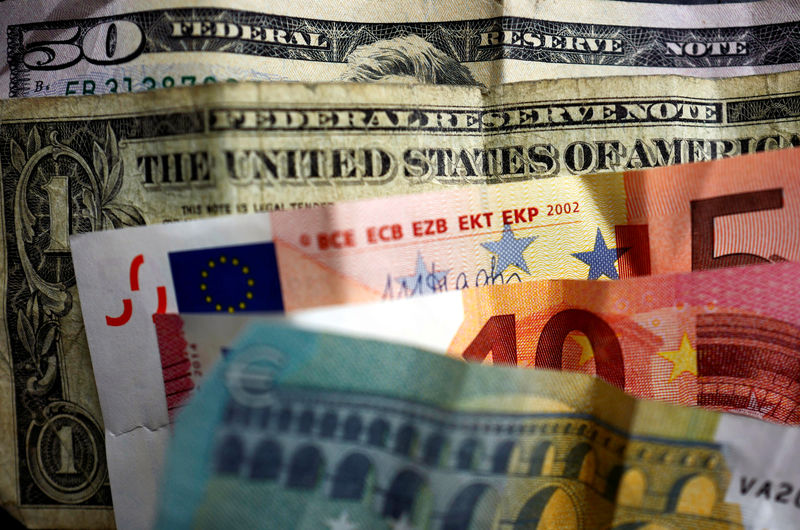Investing.com – The U.S. dollar showed resilience in early European trade Friday, retaining the majority of overnight gains after the release of eagerly-anticipated U.S. inflation data, while the euro showed some strength.
At 04:00 ET (09:00 GMT), the Dollar Index, which tracks the greenback against a basket of six other currencies, traded largely unchanged at 104.107, after a volatile overnight session.
U.S. dollar resilient
The – the Federal Reserve’s preferred inflation gauge – cooled in January, according to data released Thursday, but remained well above the central bank’s annual inflation target.
This followed a string of strong U.S. economic numbers which pointed to persistent price pressures, resulting in the markets pricing out the chances of a rate cut as early as this month.
June is now seen as the likely starting point for the Fed’s rate cutting cycle, with traders seeing around 75 bps of easing this year.
“The notion of resilient US inflation and activity data has now been fully digested,” analysts at ING said, in a note. “Investors are comfortable with three 25bp cuts priced in by December as there is just not enough data evidence to turn more dovish now. Similarly, a rate cut before June seems unlikely. All this is translating into a resilient dollar.”
Euro edges higher ahead of eurozone CPI
In Europe, traded 0.1% higher at 1.0813, ahead of the release of the figure for February, which is expected to show another slowdown of inflation in the region.
Data released on Thursday showed that consumer prices declined slower than expected in France but faster than expected in Germany. Economists are expecting an annual reading of 2.5% for February, dropping from 2.8% in January.
“A deviation from expectations could trigger short-term swings in eurozone rates and the euro, but should not really have a big impact on the narrative that Christine Lagarde and the Governing Council look set to reiterate next week,” added ING.
The meets next week, and while no policy change is expected, the bank could hint at rate cuts later in the year.
traded 0.1% higher at 1.2635, after data from mortgage lender showed that British house prices rose in February in annual terms for the first time in more than a year.
House prices were 1.2% higher than in February 2023, the first annual increase since January last year, Nationwide said.
Inflation is retreating in the U.K., but remains at a higher level than in Europe and the U.S., suggesting the Bank of England will be comparatively late to the rate-cutting party.
Yuan hit by weak Chinese PMI release
In Asia, traded 0.2% higher at 7.1989, with the yuan weaker after official PMI data showed China’s shrank for a fifth straight month in February.
The weak reading largely offset data showing some improvement in , although this increase was largely due to higher consumer spending during the Lunar New Year holiday- a trend which may peter out in the coming months.
traded 0.5% higher to 150.66, with the yen relinquishing all of its gains on Thursday, trading back above the 150 level as the prospect of higher for longer U.S. rates largely overshadowed any early rate hikes by the Bank of Japan.
Read the full article here



